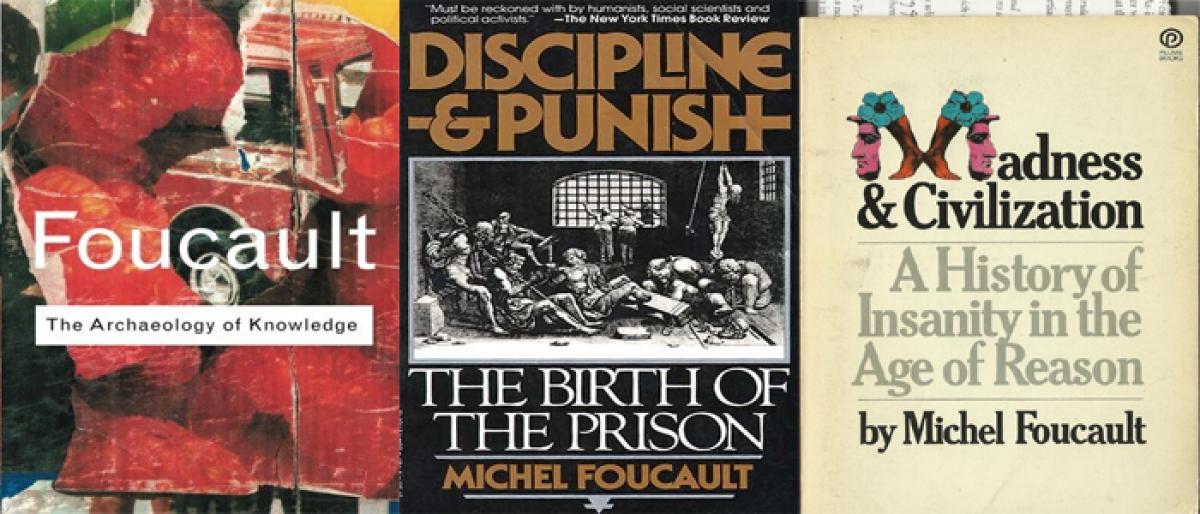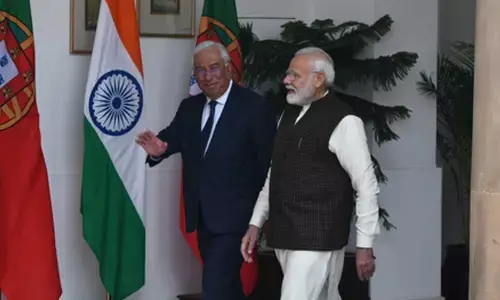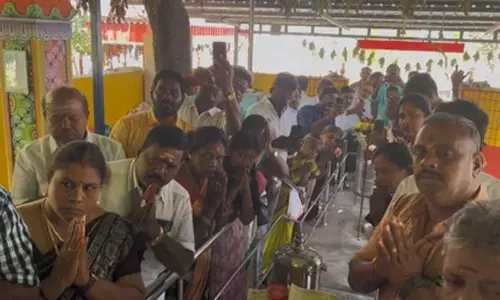In pursuit of truth

Human development owes much to philosophical \'gadflies\' who search for the \'truth\' about us and our world - not only to discover it but also find if it conforms to what we believe it is. They can end up with surprising, contentious findings like French philosopher Michael Foucault, whose quest led to him detecting a new approach to see the individual-society relationship and the prevailing ideas a
Human development owes much to philosophical 'gadflies' who search for the 'truth' about us and our world - not only to discover it but also find if it conforms to what we believe it is. They can end up with surprising, contentious findings like French philosopher Michael Foucault, whose quest led to him detecting a new approach to see the individual-society relationship and the prevailing ideas about madness, sex and criminality.
And these were among the many contributions of Foucault (1926-84), who was born on October 15 to a middle-class conservative family but didn't want to become a doctor like his father. He instead wanted to study philosophy, did so, and went on to become one of the foremost - and flamboyant - intellectuals of his time, despite having no other ambition than to become "a goldfish".
Also an influential historian of ideas, social theorist, cultural and literary critic - often with huge shifts in position over the years - as well as political activist, dissident and a philosophy icon (in his heyday), Foucault's primary focus was on the connections between power and knowledge over the years, and their use to control society. As he argues, what is claimed to be "scientific knowledge" is actually a means of social control.
And there were some unique places he contended this could be found in - mental asylums, in views of sex and its different kinds (he was homosexual himself), hospitals, jails, schools.
He was also keen to explore how humans historically became the subject and object of political, legal and academic discourses.
Chris Horrocks and Zoran Jevtic, in ‘Introducing Foucault: A Graphic Guide’, term him "instigator of a method of historical inquiry which has had major effects in the study of subjectivity, power, knowledge, discourse, history, sexuality, madness, the penal system and much else..."
Among this was his idea of the author, as Foucault contended the function of authorship "resolved or hid many contradictions" and insisted that he was not merely "the author of a book but rather the author of a theory, tradition or discipline".
"We must dispense with our habit of looking for an author's authority, and show instead how the power of discourse constrains both the author and his utterances," he said.
Nevertheless whatever he may have thought of being an author, he went to break new ground in a range of works, beginning with ‘Madness and Civilisation - A History of Insanity in the Age of Reason’ (1960, English translation 1988), which dealt with the differing perceptions and sweeping changes in the treatment of the mad. It was followed by ‘The Birth of the Clinic’ (1963, English 1973), extending the argument to medicine as a whole.
He went to propound his theory of transformation of academic disciplines and their "epistemes" or changes in approach - which he chronicles but doesn't seek to explain - in ‘The Order of Things: an Archaeology of the Human Sciences’ (1966, English 1990), while in ‘The Archaeology of Knowledge’ (1969, English 1982), he introduces his idea of "archaeology".
This he used to imply "an excavation of unconsciously organised sediments of thought", which differs from standard history of ideas in not assuming knowledge accumulates towards any historical conclusion and ignoring individuals for finding impersonal structures of knowledge.
‘Discipline and Punish: The Birth of the Prison’ (1975, English 1977) shows his view of evolution of the penal system and calls for reform in their functioning, as he argues they did not arise as a form of punishment due to humanitarian concerns, but cultural shifts that emphasised power over the human body.
And its overarching concept of discipline can also be found elsewhere too, he says, asking: "Is it surprising that prisons resemble factories, schools, barracks, hospitals, which all resemble prisons?" However, he later admitted that he was somewhat overzealous about its social effect and amended his earlier ideas.
In his three-volume ‘The History of Sexuality’ (Vol 1 1976, II-III 1984, English 1978, 1985) with the first's title ‘The Will to Knowledge’ a homage to the influence of German philosopher Nietzsche, he went to perform the same analysis of power permeating views of sexuality in the western world, particularly criticising the hypocrisy and attempts at suppression.
Possibly his most influential work, it is the one which most energetically argues that sexuality is more modern than thought, and its various aspects, like homosexuality, more of a social construct than acknowledged.
Foucault, who had other works too but none so key, resisted being labelled post-structuralist or postmodernist, terming himself simply a critical historian of modernity.
While his own life (he was the first high-profile Frenchman to succumb to AIDS) and political activity are separate stories in themselves, history has not been very kind to his ideas. But their relevance remains in reinforcing how there can be alternative perspectives, no matter how radical, about social aspects of history to find what the real motivation is - it's scarcely likely to be people's (as opposed to "public") interest.














